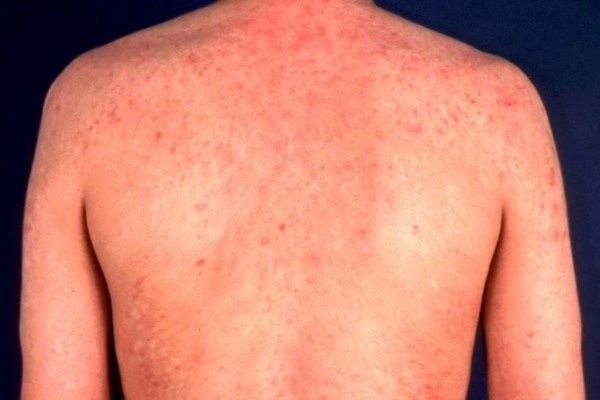Contact Dermatitis: Causes, Symptoms, and Best Treatment Options:

Table of Contents
- What is Contact Dermatitis?
- Causes of Contact Dermatitis
- Common Symptoms
- Best Treatment Options
- Skincare & Prevention Tips
- When to Consult a Dermatologist?
- Clinic Details & Locations
What is Contact Dermatitis?
Contact Dermatitis is a skin condition that occurs when the skin comes into direct contact with an irritant or allergen, leading to inflammation, redness, and itching. This condition is not contagious but can cause significant discomfort. At Dr. Kritika Derma Clinic, we provide advanced solutions to diagnose and treat Contact Dermatitis effectively.

What Causes Contact Dermatitis?
There are two main types of Contact Dermatitis:
- Irritant Contact Dermatitis: Caused by exposure to harsh chemicals, soaps, detergents, or prolonged water exposure.
- Allergic Contact Dermatitis: Triggered by an immune response to allergens such as perfumes, cosmetics, nickel (in jewelry), latex, or poison ivy.
Common Triggers
- Household cleaning products
- Personal care items like shampoos, lotions, and deodorants
- Plants like poison ivy, oak, or sumac
- Metals in jewelry (nickel, cobalt)
- Fragrances and preservatives in skincare products
- Industrial chemicals and solvents
Common Symptoms of Contact Dermatitis
Symptoms may appear immediately or after repeated exposure to an irritant or allergen.
- Redness and inflammation
- Itchy, dry, or cracked skin
- Blisters or oozing sores in severe cases
- Burning or stinging sensation
- Swelling in affected areas
- Peeling or flaking skin
Best Treatment Options for Contact Dermatitis
Treatment depends on the severity and cause of Contact Dermatitis. Our dermatologists at Dr. Kritika Derma Clinic offer a range of solutions:
- Identifying and Avoiding Triggers: Patch testing helps determine allergens to avoid future reactions.
- Topical Corticosteroids: Prescription creams reduce inflammation and itching.
- Oral Antihistamines: Help control itching and allergic reactions.
- Moisturizing Creams: Hydrate the skin and strengthen its protective barrier.
- Cold Compress: Provides immediate relief from itching and burning sensations.
- Medicated Ointments: Used for severe cases to promote healing and prevent infections.
Daily Skincare & Prevention Tips
- Avoid known irritants and allergens.
- Use hypoallergenic, fragrance-free skincare products.
- Wear gloves when handling chemicals or detergents.
- Apply a gentle moisturizer to prevent skin dryness.
- Wash the skin immediately after contact with irritants.
- Use a mild, sulfate-free cleanser for sensitive skin.
When to Consult a Dermatologist?
If you experience persistent itching, severe skin reactions, or worsening symptoms despite home remedies, it’s time to seek professional help. Early diagnosis ensures effective management and prevents complications.
Clinic Details & Locations
At Dr. Kritika Derma Clinic, we specialize in treating Contact Dermatitis with personalized care and expert guidance. Visit our clinics in Gurugram and Rewari for a comprehensive skin evaluation and customized treatment plans.
